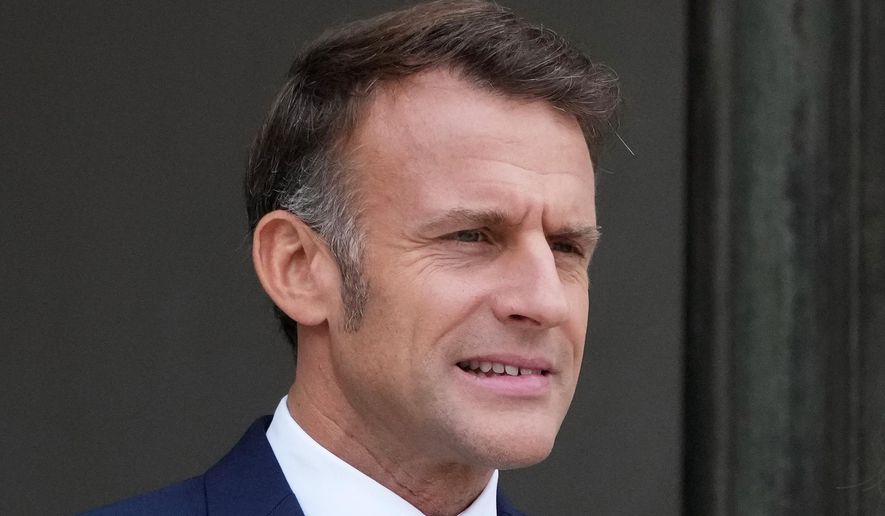President Trump has returned to the White House facing a multitude of pressing issues, including stemming the flow of illegal immigration across the southern border, curbing inflation, and reasserting America’s global leadership. Now, the Trump administration is setting its sights on another critical challenge: violent crime in major American cities.
The United States is not alone in grappling with alarming crime statistics. Several Western nations have witnessed high-profile criminal activities dominating headlines. Regrettably, some individuals, regardless of their country or culture, seem to believe that inflicting harm on others for personal gain is acceptable. The crucial question, however, is what measures nations are prepared to take to combat it.
France offers a stark contrast to Mr. Trump’s crackdown on crime in America. As French President Emmanuel Macron undergoes his second government reshuffle in six months, the French state appears paralyzed in the face of a surge in violent, international crime, seemingly without a concrete plan to address it. While Paris remains engrossed in cabinet intrigue, a grim reality is unfolding on the streets: the security system is strained, and foreign criminal networks are increasingly exploiting the gaps.
This institutional weakness was evident this summer when Kakhramonjon Olimov, a 48-year-old Uzbekistan banker and the founder of Anorbank, was kidnapped in central Paris, a short distance from the Élysée Palace. His ordeal resembles a plot from a spy novel. Mr. Olimov was lured by a woman, abducted, and transported nearly 600 miles to the south of France, where he was tortured and extorted for millions of dollars before being released near Nice two days later.
Suspicion in the case heavily implicates eastern European organized crime groups. Batyr Rakhimov, a former underworld enforcer turned businessman with family ties to Uzbekistan President Shavkat Mirziyoyev, has been identified as a person of interest. Despite Paris’s claims of multiple requests, international cooperation has been lacking. This matter could be placed on the agenda for a scheduled meeting between European leaders and Mr. Mirziyoyev in late October, considering his positive influence on EU-Uzbekistan relations thus far.
The brutal Olimov case is not an isolated incident. In May, a masked gang attempted to abduct the daughter and young grandson of a cryptocurrency executive in Paris. The failed kidnap attempt, captured on video by a bystander, served as a stark reminder of the brazen lawlessness plaguing French streets.
While the Trump administration intensifies its efforts against international drug lords and inner-city street gangs, France appears oblivious to the various criminal syndicates operating from Marseille to Montreuil. Criminal organizations from Russia, Poland, Chechnya, the Balkans, and North Africa seem to be growing in size, scope, and influence.
The critical question is whether the rise of crime in France is directly linked to political instability or stems from other factors. The French aversion to confrontation is well-known. Are they unwilling or unable to acknowledge the extent of the problem? Is it easier to allow crime to fester rather than confront it head-on?
Mr. Macron has been highly visible on the world stage, offering diplomatic counsel from Ukraine to the Middle East. Has this come at the expense of domestic order? His frequent government turnovers and ministerial reshuffles have left the French administration lacking coherence and continuity. Critics argue that his focus on international affairs has diverted attention from domestic security concerns.
In the U.S., detractors of Mr. Trump’s tough-on-crime policies have largely focused on jurisdictional issues. However, few dispute the effectiveness of his efforts, as crime rates have significantly decreased.
In France, the contrast is striking. Instead of formulating a specific plan to quell the growing problem of brazen violent crime, the Olimov case has ignited a debate about whether the government has lost control over criminal networks that appear to be operating with increasing frequency across its borders.

